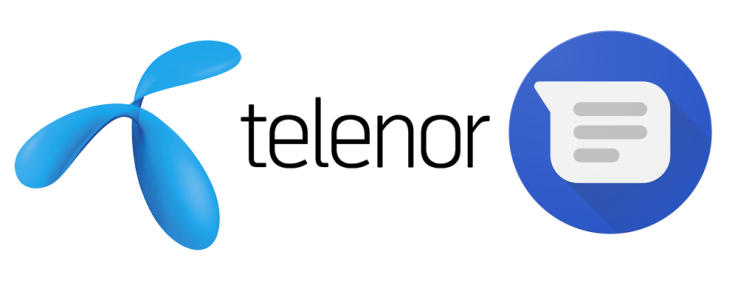

Another mobile carrier, Telenor, has partnered with Google to roll out a next-gen SMS tech — this time targeting Android users in Europe and Asia.
The aim with the Rich Communications Services (aka RCS) technology in general is to bring an enhanced messaging experience for SMS users — enabling iMessage-style features such as group chats, read receipts and typing indicators, and high-res photo sharing.
The flavor of the tech Google is involved with integrates its own Messenger app into the native SMS app to bring upgraded native messaging features to newer Android handsets.

Late last year this flavor of RCS tech was rolled out to Android hardware using the Sprint and Rogers‘ networks, in the US and Canada — with Sprint being Google’s first carrier partner in the initiative.
Telenor’s coverage footprint includes countries such as India and Thailand, as well as multiple European nations, and it has some 214 million mobile subscribers in all — so it’s the biggest bump yet in potential reach for Google’s initiative.
That said, the company still has a very long way to go if it’s hoping to build comprehensive backing for its effort to upgrade Android users’ experience of SMS across the board.
Almost a year ago, Mountain View announced a joint effort with mobile carriers to push the next-gen SMS standard, with a plan to include an RCS-messaging client in Android.
Although it’s also been up to individual carriers to get on board and enable the tech for their networks, which underlines the scale of the fragmentation challenge for Google/Alphabet here, given how carriers do tend to prioritize their own competing commercial interests, rather than falling in step with Google’s. (Whereas Apple’s closed iOS ecosystem more easily sidesteps such issues.)
In fact carriers actually started working on RCS a decade ago, with the idea of improving SMS across the board. Yet according to data from mobile industry association the GSMA, there are only around 50 carriers globally with RCS launched at this point, spanning 37 countries and supporting 156 devices. (And, to be clear, the lion’s share of those rollouts are also older iterations on the RCS standard — i.e., not the newer, Google-backed play with the Android RCS-messaging client on board.)
In 2015 Google clearly got tired of waiting around on the sidelines for carriers to get a collective messaging act together — acquiring a specialist in the standard, Jibe Mobile, to, in its words, “help bring RCS to a global audience”. Or rather to try to persuade carriers of the benefits of aligning with a cross-network Android-to-Android next-gen SMS messaging strategy.
Progress so far on that goal? The three carriers listed in this article. Though the company says it will have more RCS launches in the “coming months”, and related news to announce at the Mobile World Congress tradeshow taking place later this month — so more operators are presumably going to be added to that tally soon.
Either way, Google remains a very, very long way away from its sought for destination of having a comprehensive competitor to iMessage baked into Android users’ SMS experience out of the box. The diversity of the Android ecosystem makes any push for standardizing enhanced native messaging features a Sisyphean struggle.
And even where carriers agree to roll out its flavor of RCS, as Telenor now has, the initiative relies on existing subscribers to their networks having the Google Messenger app already on their phone in order to get the update automatically (via an update to that app). Or else installing the Messenger app in future.
Google said today that as part of its partnership with Telenor “many” new Android devices will come with Messenger for Android preloaded as the default SMS and RCS messaging app. But many =/= all. So its RCS play is also being hamstrung by a limited pool of compatible devices.
Safe to say, a lot of players will need to be in it for the long haul if Android is to summit this ‘better native messaging’ mountain.
Meanwhile, over-the-top mobile messaging app giants like Facebook-owned WhatsApp — which has more than one billion monthly active users for its richly featured messaging platform — continue to cannibalize SMS and pull users away from native messaging clients. Meaning all this effort might end up being rather ‘too little, too late’ in any case.

